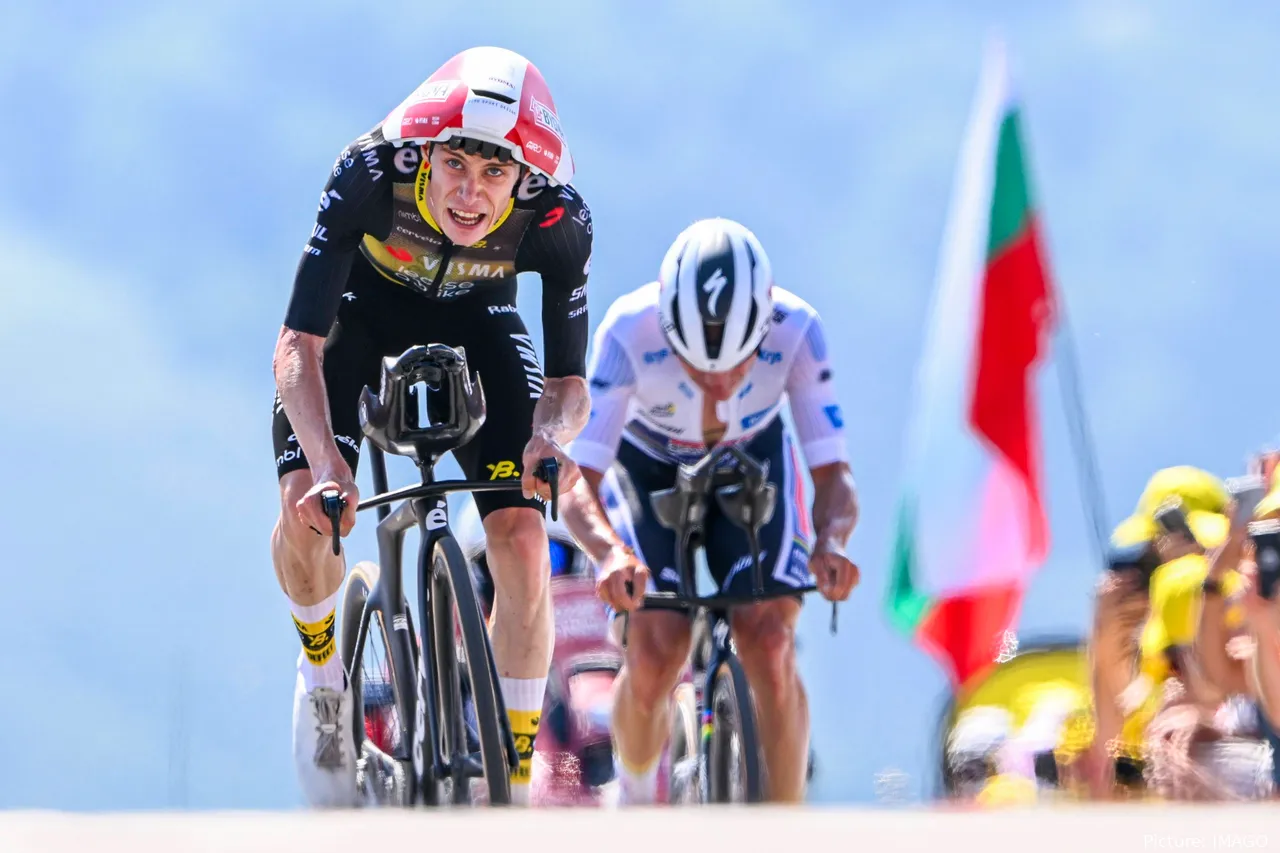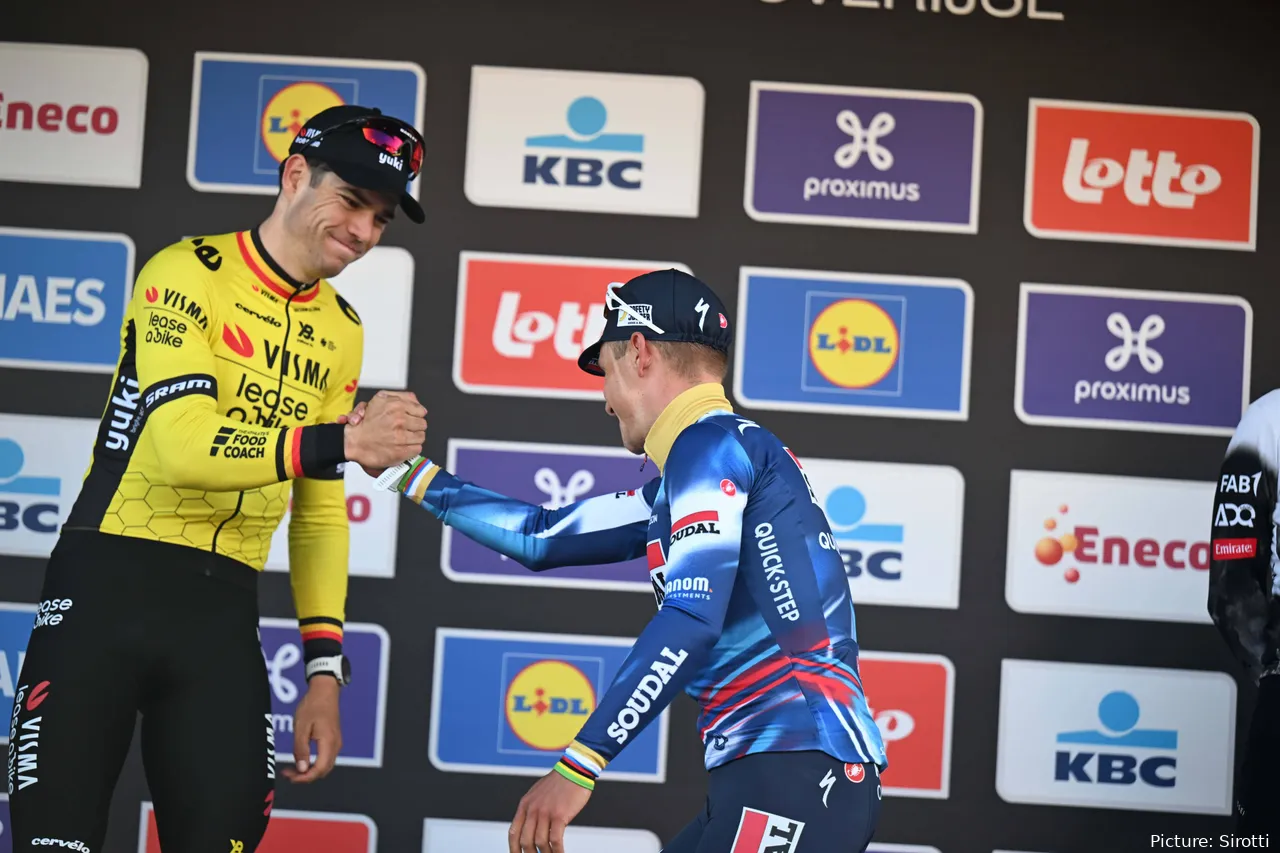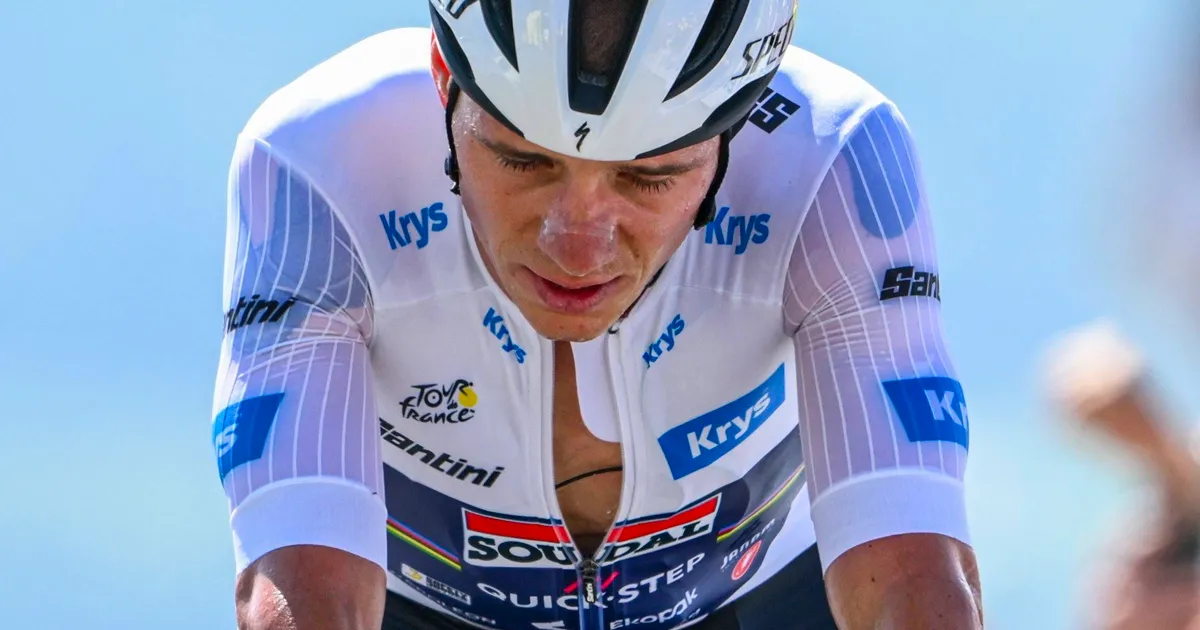This was a withering assessment from the most iconic name in
Belgian cycling history, one that seemed to question Evenepoel’s fundamental
makeup as a rider. It’s not surprising given Merckx’s long-standing,
occasionally gruff views on modern cycling, but his words carried weight. They
also ignored context.
Yes, it seems unlikely right now that anyone can beat Tadej
Pogacar, especially in a grand tour. But to rule Evenepoel out, considering the
context of his 2025, seems harsh to me.
Evenepoel’s 2025 season began in April, and his last race of
2024 was on October 12. After that, he was sidelined for four months following
a high-speed training crash with a van in December. It wasn’t until April 18th
at Brabantse Pijl that he returned, and when he did, he promptly beat Wout van
Aert in a sprint. This was not the sign of a finished rider. It was the sign of
one who could still deliver brilliance, even without the months of foundational
training others had banked.
Chris Horner, speaking on his Beyond the Coverage podcast,
offered the most nuanced, if critical, analysis of all. He identified
Evenepoel’s collapse at Liège–Bastogne–Liège as the point where the warning
lights began flashing. “Whatever brought in that problem at
Liège–Bastogne–Liège… that was the moment he needed to take two weeks off the
bike,” Horner said.
Evenepoel endured a brutal three days in the Pyrenees
Instead, Evenepoel continued racing. He started Tour de
Romandie, then the Dauphiné, and ultimately the Tour. In hindsight, it was a
chain of miscalculations, either from the rider himself, his team, or both.
“He was never able to put together a training session
between Dauphiné and the Tour,” Horner pointed out, referencing Evenepoel’s own
Instagram posts. “If you’re a rider like Remco Evenepoel and you can’t put
in a six-hour ride and feel fresh after, you’re not ready for the Tour de
France.”
Horner’s takeaway was clear: Evenepoel was over-raced and
under-recovered. The “dead battery” metaphor he used was telling. “A battery
should never drop from full to zero,” he said. “If something happens like that,
you’ve got a dead battery. Remco, you have a dead battery.”
These are fair criticisms rooted in form and physiology, but
does not mean the Belgian can’t bounce back.
Jan Ullrich, however, took it a step further. Speaking on
the Ulle & Rick podcast, the former Tour winner said, “Remco has to learn
to deal with it. Even when things aren’t going well, people are following him.
Remco needs mental help.” He then added, “His base wasn’t sufficient. He’s
simply missing thousands of kilometres of training. His foundation wasn’t
strong enough, and then you can suddenly collapse completely as a rider.”
There’s truth in Ullrich’s assessment of the physical base.
You can’t fake Grand Tour condition, especially when your competitors have been
preparing at altitude since January and you only returned to racing in
mid-April. Evenepoel’s 2025 season, by his own admission, was built under time
pressure. “The winter months were taken over by rehab and recovery… the goal
gave me focus, but it also created a lot of time pressure,” he said in his
post-Tour statement.
But the suggestion that he “needs mental help” veers into
sensationalism. Evenepoel has shown resilience repeatedly, he has been able to
bounce back from many set backs before. He won the Brabantse Pijl on
return. He came back from near death at Il Lombardia in 2020. He recovered from
a spring crash in 2024 to light up his debut Tour. At this year’s Tour, he won
a stage against the clock, and held the white jersey.
It was only in the high mountains, after a fractured rib
from the Belgian Nationals and a bout of sinusitis, that he finally faltered.
When he stepped off the bike on stage 14, he called it “one of the rawest, most
vulnerable moments” of his career. “I broke,” he admitted. “And strangely
enough, I’m proud of it.”
Contrast that with the reaction to Wout van Aert this
spring. After a quiet start to the year, Belgian media pounced. Van Aert was
called finished, broken, and out of place. He then went on to win two of the
most memorable stages of the Giro d’Italia and the Tour de France. The
narrative flipped overnight, clearly another Belgian in Van Aert was written
off far too quickly.

Evenepoel and Van Aert have both suffered at the hands of the Belgian press in 2025
The question is: will the same media extend Evenepoel the
grace of a comeback?
It’s important to remember that Van Aert and Evenepoel both
entered 2025 with injuries. Van Aert began racing earlier, whilst Evenepoel had
to wait until mid-April. That’s six months without racing at the highest level.
Merckx’s claim that he’s “not strong enough uphill” ignores that Evenepoel
finished third overall at the Tour last year, and has won a grand tour before.
In many ways, Evenepoel is a victim of his own success. He
is naturally seen as one of the very few riders that can compete with the ‘aliens’
that are Pogacar and Vingegaard. The problem this year was not lack of talent
or desire, it was a lack of foundation.
As Horner put it: “Hopefully he has taken these last two
weeks off… and just rested on the couch… because if he did, there’s time to
prepare for the Worlds.”
And therein lies the next chapter. The World Time Trial
Championship and Road Race are still on the horizon. Evenepoel has three rainbow
jerseys too his name already, and if he can regain his form he will be a
favourite for a fourth and maybe even a fifth.
Criticism comes with stardom, and Evenepoel carries the
burden of being a national figure in a country that still measures greatness by
the Merckx standard. But perspective matters. He is 25, his palmarès already
rivals most retirees. And if 2025 has taught us anything, it’s that injury,
pressure, and human limitations can derail even the best.

